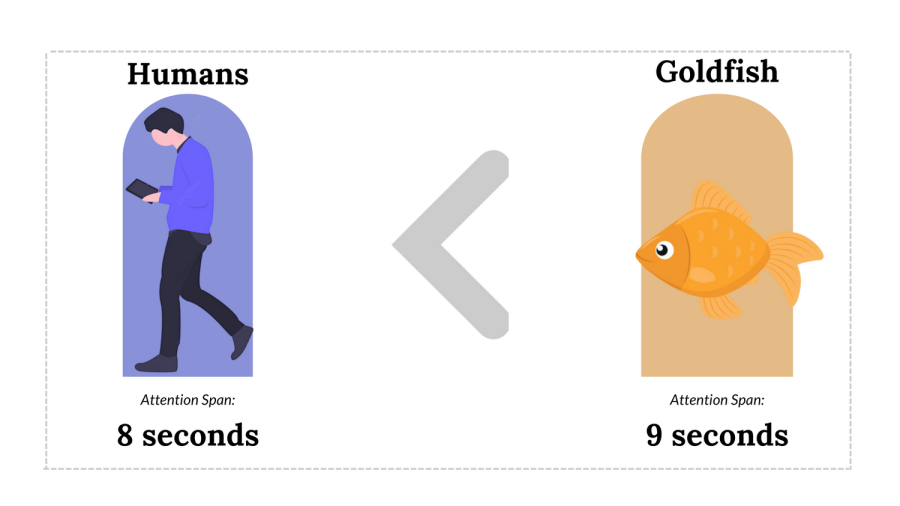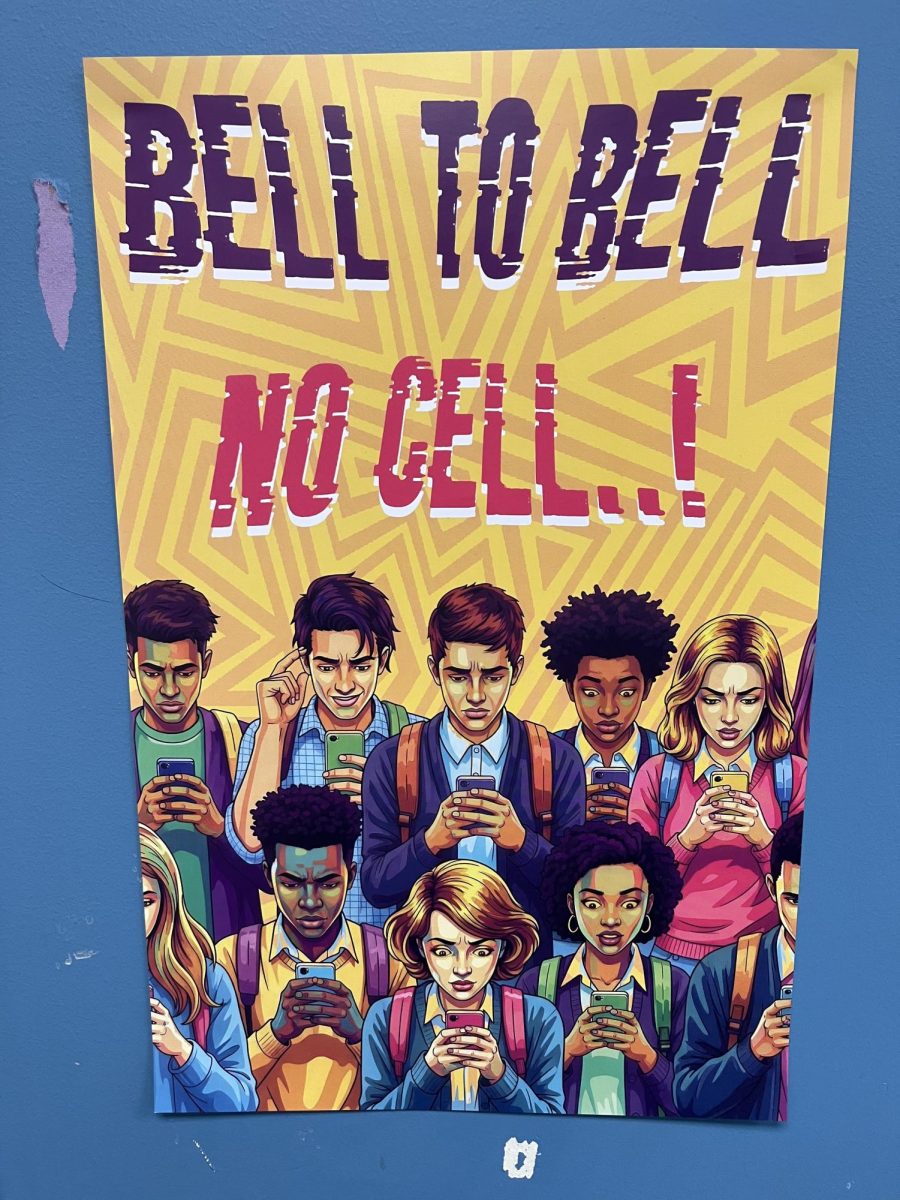Are Our Attention Spans Shortening?
November 9, 2022
Swimming circles around the perimeter of a tank is the usual routine of a goldfish. Their life seems to revolve around a constant lack of focus on a particular job; instead, they seem to play along with life. They are one of the few animals to have an exceptionally short attention span. It is hard for them to concentrate on a particular activity, since they would much prefer to swim around in their own world. Similar to the goldfish, humans are showing signs of decreasing attention spans in response to our highly digitalized world.
Recent studies indicate humans start to lose concentration after about eight seconds–a change that can be attributed to heavy phone use. Even in a classroom, teenagers are glued to their phones prompted by the incessant buzzing notification that breaks their attention from academics to socials. A brief disruption is all it takes to lower our attention span.
Our attachment to our phones is related to instant gratification and pleasure. Media platforms such as Tik Tok, Instagram Reels, and Youtube shorts, have adapted to short form content that appeals to the masses and their desire for immediate satisfaction.
Multitasking branches from our short attention spans. In reality, our brain is unable to handle working simultaneously on different tasks. Rather, once we lose focus on one task, we can easily switch to another.
The real problem is that we are affording less effort and time to complexity and nuance. We merely look at the onion, rather than peel back the layers. This becomes relevant in English classes where students are forced to read literature that requires an analytical lens.
In the end, the consumer is in control of whether they want to enhance their analytical side or watch videos on Tik Tok.
Even now, are you actually focused on reading this?
So, how many times did you glance at your phone while reading this article?






